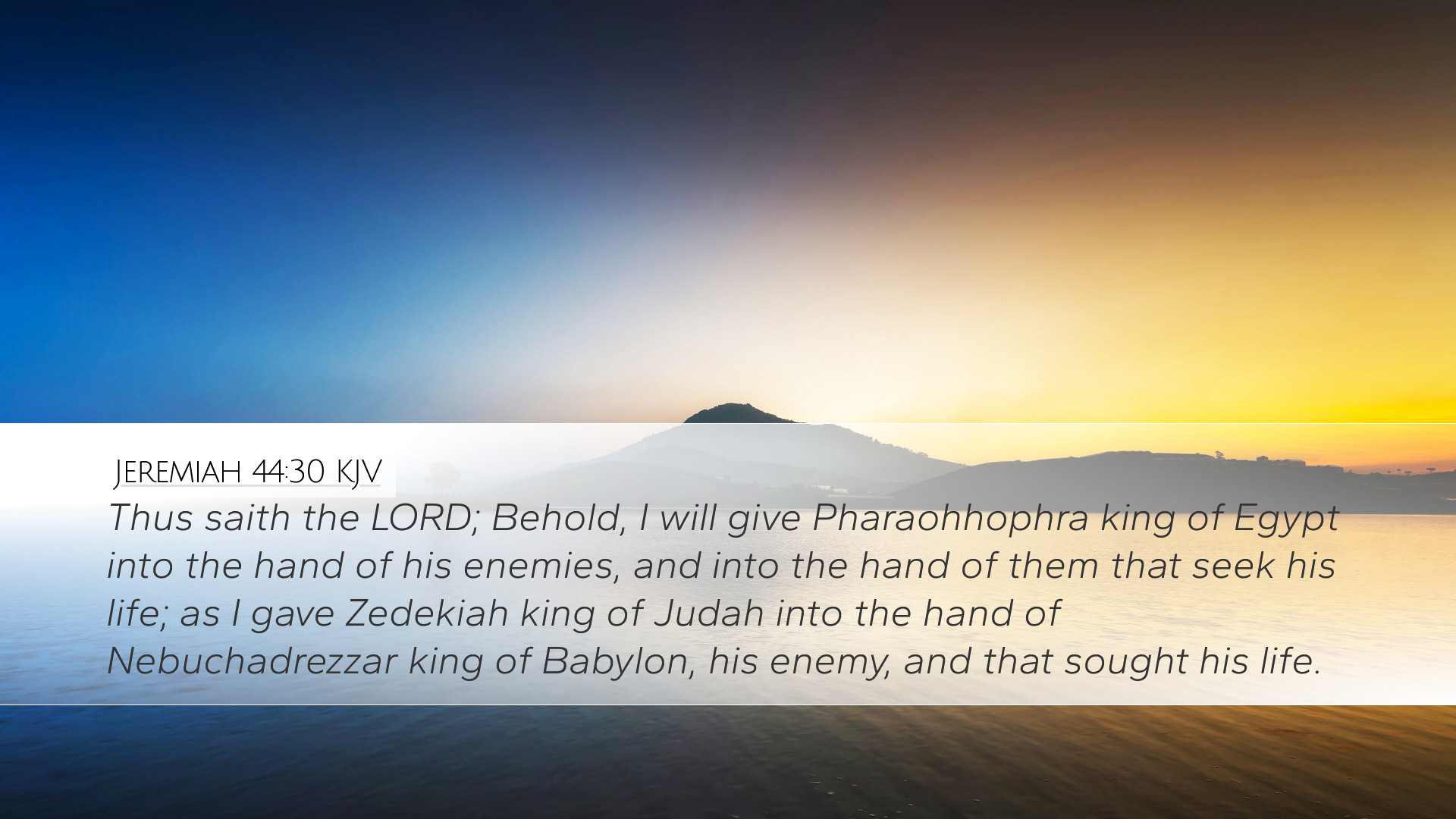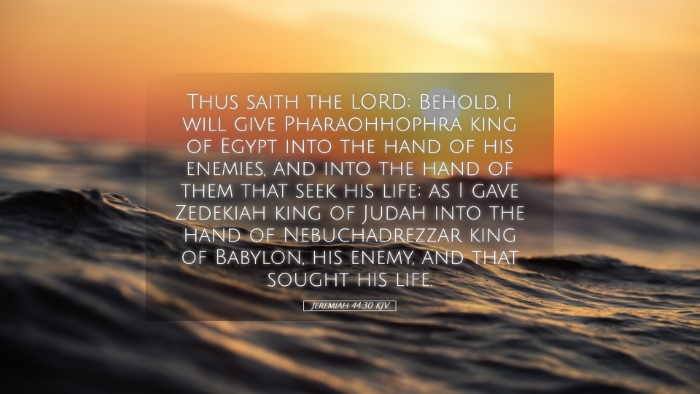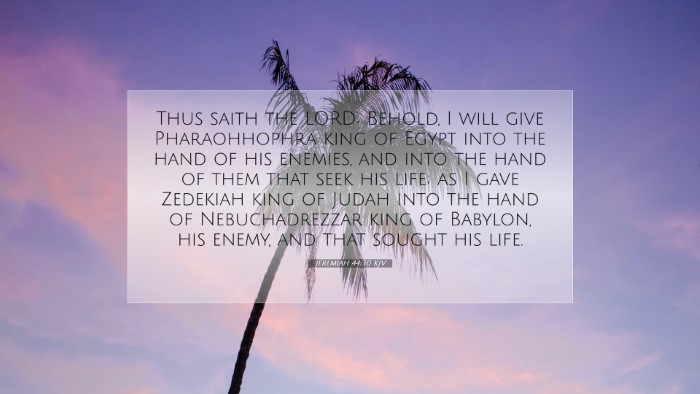Commentary on Jeremiah 44:30
Verse: "Thus saith the LORD; Behold, I will give Pharaoh Hophra king of Egypt into the hand of his enemies, and into the hand of them that seek his life, as the hand of Nebuchadnezzar king of Babylon." (Jeremiah 44:30)
Introduction
The verse serves as a profound commentary on God's sovereignty and His judgment against those who oppose His will. It is a declaration concerning Pharaoh Hophra, also known as Apries, who ruled during a tumultuous period in Egyptian history.
Contextual Background
This verse is situated within the larger narrative where the prophet Jeremiah delivers a message to the remnant of Judah who had fled to Egypt after the fall of Jerusalem. Their continued rebellion and refusal to heed God's warnings are addressed as they sought refuge in Egypt, a land steeped in idolatry and false security.
Exegesis
Divine Judgment
The statement "I will give Pharaoh Hophra... into the hand of his enemies" illustrates God's ability to execute vengeance against nations and leaders who stray from His ordained path. It underscores the theme found across the prophetic literature: that no earthly power can stand against God's decree.
The Role of Nebuchadnezzar
By likening the fate of Hophra to that of Nebuchadnezzar, God is communicating that He is, indeed, in control of the affairs of both Israel and the nations surrounding them. Nebuchadnezzar, who destroyed Jerusalem, serves as a reminder of God’s methods of chastising both His people and their adversaries.
Lessons for Today’s Believers
As we reflect on this passage, several lessons emerge that retain their relevance for modern readers:
- God’s Sovereignty: This passage reassures believers that regardless of circumstances, God remains sovereign over history and leaders.
- The Consequences of Rebellion: The repeated warnings to the remnant about their disobedience highlight the serious nature of straying from God’s commands.
- Hope in God’s Justice: While God’s judgments might seem harsh, His justice serves as a reminder that He is actively involved in the affairs of humanity.
Commentary Insights
Matthew Henry’s Perspective
Matthew Henry emphasizes the glory of God's providence, detailing that the downfall of Pharaoh serves as a necessary consequence of his hubris and rejection of God. Armstrong fully asserts, “Those who trust in the arm of flesh will find it a broken reed.” Henry cautions believers about the dangers of seeking security in worldly powers rather than in divine assurance.
Albert Barnes’ Interpretation
Albert Barnes notes the specific historical context of Hophra’s reign, highlighting his military failures and the prophecy's impending fulfillment through the Babylonian forces. Barnes suggests that this verse serves as a sober reminder to rely on God's promises rather than human alliances. He states, "It is better to fall into the hands of God than to depend on the frailities of man."
Adam Clarke’s Analysis
Moreover, Adam Clarke delves into the period's socio-political dynamics, explaining that Hophra's reign was marked by strife and disappointment. Clarke remarks on God's pronounced judgment—the anticipated deliverance of Israel from Egyptian influence highlights the futility of idolatry. He points out that “God will break down the walls of false security for those who persist in their rebellion against His will.”
Conclusion
Jeremiah 44:30 serves not only as a historical prophecy but as a timeless reminder of God's sovereignty and the perils of disobedience. Pastors, students, theologians, and scholars will find that this passage offers insights into God’s character as the ultimate authority in both judgment and mercy. The lessons drawn from this narrative call us to a greater trust in divine providence rather than in the fleeting security of worldly powers.


